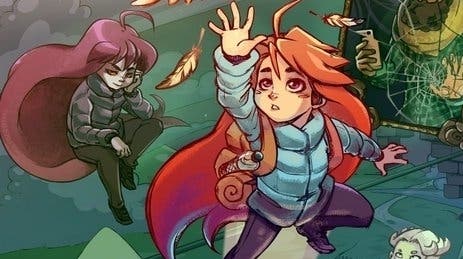Why don't we talk more about cognitive accessibility?
And why are we actually moving backwards?
Pokémon has reached its ninth generation with Pokémon Scarlet and Violet, representing the series' first foray into an open world. Results so far have been mixed, with particular focus on the games' poor technical performance. However, the move to an open world has inspired other problems that, while not alien to the series, are exacerbated by the extra freedom afforded players.
With both games' maps and minimaps obscured with countless icons, a lack of pathfinding, and no meaningful landmarks, navigation in Pokémon's ninth generation is, thus far, a nightmare.
While this is partly down to Game Freak's inexperience with open world games, it's also part of a growing trend in the industry. Navigation aids, quest logs, objective markers - aspects of gaming with which we're so familiar - are disappearing. Where once studios like Bethesda and Ubisoft drowned us in wayfinding, now its relative absence is disadvantageous to players. In particular, it's disadvantageous to cognitively impaired gamers.
Cognitive accessibility is frequently left out of accessibility conversations. This is unsurprising from Japanese studios like Game Freak - or Nintendo - where accessibility is ignored, and often incidental. But as we push towards greater accessibility in the west, most recently with God of War: Ragnarök, why is cognitive accessibility being left behind?
Cognitive impairment, in context
Cognitive impairment affects a range of functions in the human body, including memory, concentration, communication, and emotions. Associated with multiple conditions including dementia, ADHD, autism, and epilepsy, cognitive disability - both mild and significant - also forms a major axis of chronic illness, in the host of conditions labelled chronic fatigue syndrome and fibromyalgia, multiple sclerosis, and, as of 2020, the after-effects of COVID-19.
For players struggling with cognitive impairment, tools that aid in navigation and remembering tasks play a vital role in allowing us to play at all. Yet, these elements are being toned down or removed from modern games. Ghost of Tsushima converted wayfinding into a vague gust of wind, while Elden Ring eschewed the tracking of quests and meaningful navigation altogether.
"As modern games have moved away from linear paths," says Laura Kate Dale, an accessibility critic and consultant, "and in cases of games like Breath of the Wild allowed you to entirely head as the crow flies and climb up a wall rather than follow a walking route, games have become more reluctant, in my experience, to offer pathfinding lines."
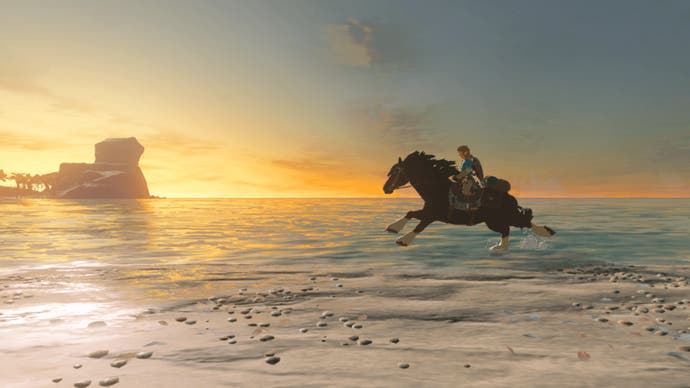
While one can sympathise with the difficulty of adapting the communication of navigation as we expand our catalogue of movement in 3D spaces, in many cases the response to this challenge is to remove pathfinding tools entirely.
Which drops cognitively impaired players into an overwhelming and unnavigable world.
Alexa already has cognitive symptoms, but after a bout of COVID she found periods in which she "couldn't play games at all. I simply didn't have the focus to process what I was doing."
A major issue for Alexa?
"My brain doesn't really make mental maps of where things are in relation to each other. Even with a minimap on screen, I've had times where I set a goal marker and, if it doesn't have a directional beacon of some sort I can see on the main screen, I'll end up going the wrong direction."
This echoes the experience of many, including myself, in a gaming landscape pushing into larger, more complex worlds and trending away from non-immersive navigation, all while a neuroinvasive virus sweeps the global population.
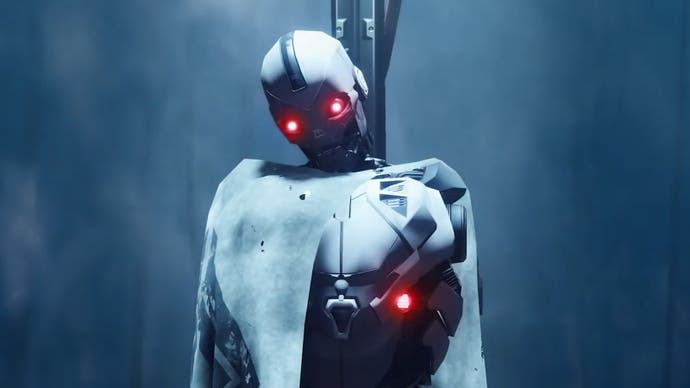
It's made worse when we consider that cognitive accessibility can be more complex than wayfinding, including tools that help us parse movement and narrative momentum, like closed captions, accessibility tools "explaining non-verbal subtext in subtitle files," which Laura says "have previously been helpful for me."
Or it can include better social tools to help those for whom communication and socialising are more difficult. This is something Dan, an autistic gamer, struggles with in Destiny's raid system.
A lack of options to curb complex inputs and a requirement to tackle raids in a team make it more difficult to undertake them. Looking at trophy and achievement data for Destiny 2, this is a widespread issue as fewer than 20 percent of players have completed a raid.
The scope of cognitive accessibility, like so many areas of accessibility, is broad. That can be a challenge for developers. But it's growing harder to see any resources put into cognitive accessibility when so many tools that already helped are being taken away.
What's happened?
Why have we reached the point where cognitive accessibility is so absent from games and discussions around them? For Alexa, it's partly because "a lot of cognitive accessibility features already exist. But they aren't always considered accessibility features."
Laura agrees. "Because a minimap, or screenshot functionality, or plot recaps, are all things that are used frequently by non-disabled players, there isn't really an association between them and the idea they are accessibility features."
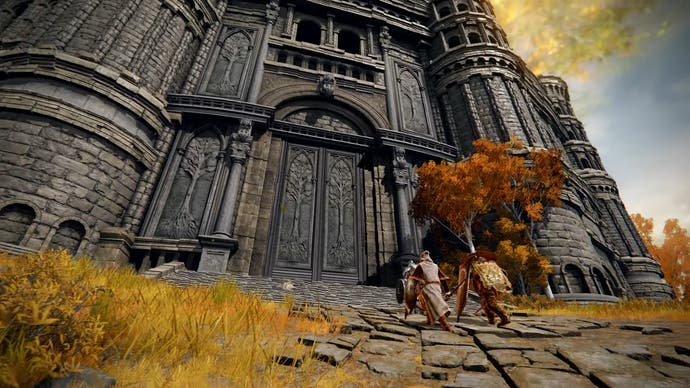
This is a trend we can trace back to 2016, as From Software titles moved into the mainstream, and then two years later with the release of Breath of the Wild and its imitators.
Dark Souls has long been lauded by vocal fans for not "holding the player's hand" (their words) with an absence of tutorials (even though every From Software games has tutorials) or wayfinding. The resulting confusion over how to proceed has been refreshing for some, while for others it's pushed them out of the games.
In the leadup to Elden Ring's release, Hidetaka Miyazaki - the creator of Dark Souls - told the New Yorker. "I just want as many players as possible to experience the joy that comes from overcoming hardship."
It's a sentiment most developers would echo. But, in practice, it's hard to see truth in the statement when games like Breath of the Wild and Elden Ring give players such free rein in enormous worlds with few, if any, cognitive aids.
The system employed by Elden Ring, particularly, is an enormous barrier to cognitively impaired players. "I struggle a lot when video games give me too many tasks to hold in working memory at once," Laura explains. "Or expect me to focus for long periods of time, and use things I have seen in contexts where I can no longer see them."
When criticism is levelled at these decisions, however, it is often ignored or aggressively rebuked, As seen in opprobrium levelled at Elden Ring by developers for its lack of wayfinding and cognitive accessibility.
It's something Dan experiences when communicating his difficulties to the Destiny player-base. "The community doesn't see it as an accessibility issue," Dan says. "It's treated as a skill issue, so they say I don't 'deserve' that content (and then go back to claiming that the raids aren't hard anyway)."
This makes it all the harder to communicate our needs, even when speaking to those ostensibly supporting accessibility efforts. As Laura told me, "My experiences are often treated somewhat as an afterthought in accessibility discussions, because of the level of abstraction between my needs, and what people from the outside can see."
This mirrors wider society, in which cognitive symptoms are not immediately obvious to outside observers, linked to so-called "invisible illnesses", and regularly more maligned than the already dangerous levels of apathy towards disability. In a world so built around perceived normality that consistently excludes disabled people, it's growing harder to advocate for one's self in all areas of life.
But in gaming, thanks to features not trending with a wider, able-bodied audience, we're losing much of the progress already made.
Hope?
Is there hope for the future? Perhaps that depends on our own, individual outlook. But while cognitive accessibility is frequently ignored, and we're seeing a devolution of it in actual gameplay terms, the industry isn't entirely apathetic to tools and features that help us.
Ironically, Ubisoft has fitted recent Assassin's Creed titles with options to play with or without map markers, while characters frequently remind players of current objectives.
Alexa tells me how Celeste helped her when she "set the game speed to 90 percent of its full speed. This gave me more time to press the buttons with poor reflexes, but it also gave me more time to think and process the information."
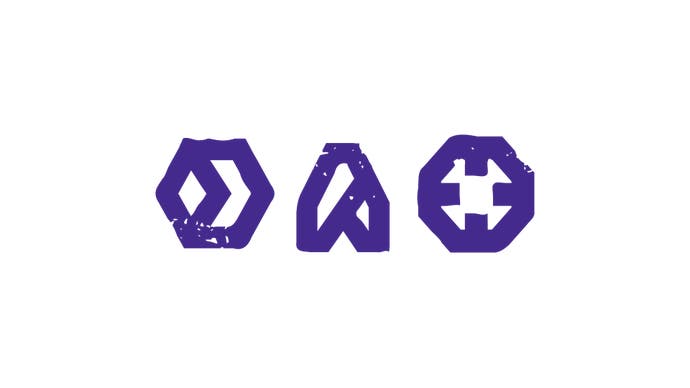
Marvel's Avengers' use of closed captions was a boon for Laura, who mentions a scene in which two characters share a wordless exchanged contextualised in subtitles. "Having these non-verbal interactions explained was really helpful, and something I wish more games considered," she said.
Dan points me to Pillars of the Earth. "The menu gives you multiple options to auto-pause based on low health, a timer, or when abilities recharge," he says. "It can really give you time to consider what's going on." Similar to Obsidian's recent release, Pentiment, "You can hover over a lot of the underlined terms to get a popup that reminds you what it means, and the quest log is pretty good at giving an overview of what choices you made so far, and who you need to see next."
Within an industry in which cognitive accessibility is so often rendered disposable, there are bright spots. But until conversation around cognitive accessibility is normalised these may remain faint lights on an otherwise dim horizon. With our ability to play games driven not by a lack of progress, but a devolution of specific standards due to player trends, we're liable to keep seeing elements that make games accessible and navigable for players like me removed.
It's a bit like being new to a city. But when you look for signs, they're all gone because locals liked it that way. When you ask for help, you're told you're simply not good enough to find your way around. It's isolating, excluding, and, for many, impossible. With current trends, that's the future of gaming: removing everything that takes the effort of navigation away, until we're all lost.
